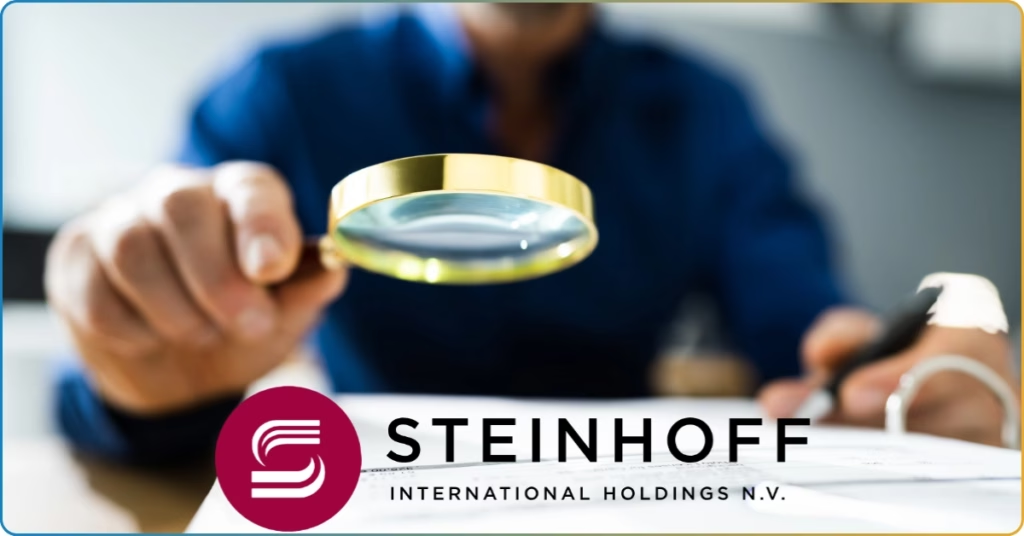After a decade of crypto craze in South Africa, the Financial Sector Conduct Authority (FSCA) finally put the crypto market under its oversight.
Declaring cryptocurrency assets as legal financial products is an effort taken by the South Africa Reserve Bank (SARB) and FSCA to remove the country from the Financial Action Task Force’s (FATF) grey list.
In this article, you’ll walk through the development of cryptocurrency regulations by the FSCA. Explore everything you need to know about the current crypto market in South Africa.
South Africa’s Cryptocurrency Market in the Past
Despite different internet connectivity crises, South African traders were not behind the ongoing crypto craze. In fact, Luno – South Africa’s leading crypto asset provider – recorded that worth 655 billion rand were traded within the country since its inception to the country.
But here’s the thing: This staggering investment amount was done without any regulatory recourse.
While the crypto service provider operates in South Africa, it’s worth noting that their operations are largely unregulated.
Crypto Market was Unregulated – What This Signifies to South African Crypto Holders Back Then
Simple—when there is no specific legislation or regulation in the crypto market, South African crypto holders are not protected at all.
The growing online trading industry entails the rise of fraudulent activities from financial service providers (FSP). When encountering an unethical activity from a crypto asset service provider, seeking resolution or recovery will be like finding a needle in a haystack.
Thus, investing with a regulated FSP is always wise to ensure your investment is safeguarded in case of an investment scam.
Join CommuniTrade for free and access broker reviews to ensure you’re trading with a proven and reputable broker. Additionally, you’ll get a fair online dispute resolution system with TRU DRS to protect you from unethical brokerage practices.
Financial Action Task Force Grey Lists South African Crypto Market
The Financial Action Task Force (FTAF) grey lists South African cryptocurrency market due to lack of regulatory framework to combat money laundering in the crypto ecosystem.
Ultimately, the watchdog is yet to find significant actions and mechanism to combat financial terrorism. This concern is more significant in the growing cryptocurrency market.
Thus, the FSCA declared that it would oversee the cryptocurrency market to ensure a stringent monitoring of crypto-related activities and exchanges.
The FSCA Declared Cryptocurrency Regulations in South Africa in 2022
Despite the lucrative opportunities of cryptocurrency investing, South African traders question the sustainability of their holdings. They worry about the potential conflict of interests between them and their crypto service provider aside from the inherent risk of the crypto market volatility.
To add more weight to the issue, the South African financial market was put on the FATF’s grey list due to its lack of regulatory frameworks to combat money laundering and financial terrorism.
The FSCA and the SARB combined efforts to create a regulatory framework for cryptocurrency investment to address the recommendations of the FATF.
The regulatory framework was approached with these three major areas to ensure a proper ‘line of sight’ with cryptocurrency exchanges within South Africa’s borders.
- Cryptocurrency service providers (CSP) must register with the Financial Intelligence Centre (FIC).
- CSP must comply with Anti-Money Laundering (AML) and Counter-Terrorist Financing (CTF) requirements.
- South African crypto holders must report crypto transactions to the SARB’s Financial Surveillance Department (FinSurv) for exchange flow oversight.
After a thorough assessment and the need to escape the Financial Action Task Force’s grey list, the Financial Sector Conduct Authority finally declared that it would oversee cryptocurrency exchanges in the country.
This means that the FSCA oversees all cryptocurrency-related activities and developments to protect South African investors from the growing risks of fraudulent activities within the financial market.
Read more about the FSCA’s statement about its declaration of cryptocurrency assets as a legal financial product in South Africa:
Crypto Platforms Should Be Licensed
Before it can tender financial services to South African investors, every crypto asset service provider should be authorized by the FSCA as an FSP and registered with the Financial Intelligence Centre (FIC).
By becoming licensed by the FSCA under the Financial Advisory and Intermediary Services (FAIS) Act, digital currency is defined as:
- An asset can be traded, transferred, or stored electronically despite not being issued by a central bank.
- A medium used for investment, payment, or other forms of utility.
- An asset not issued by a central bank, rather does apply cryptographic techniques for production.
- An investment product that uses distributed ledger technology for protection.
The 18-Month Exemption for Existing CSPs in South Africa
Existing crypto service providers in South Africa could draft an exemption request for supplying certain requirements for the licensing registration if they complied immediately/appropriately to:
- Licensing application submission, effective on the June 1 to November 30, 2023
- Section 2 of the Determination of Fit and Proper Requirements – Honesty, Integrity, and Good Standing
- Section 2 of the General Code of Conduct – Rendering financial services honestly, fairly, with due skill, care, and diligence, and in the interest of clients and the integrity of the financial services industry.
- Information request from the FSCA, especially for the request evaluation.
Specifically, the draft proposal includes an 18-month exemption from the regulatory examination requirements. This essentially allows existing CASP from tendering financial services in South Africa while taking the regulatory examinations.
There Are Now 75 CASP Licenses Under the FSCA’s FAIS Act
After the declaration in December 2022, the FSCA immediately started the application process for the CASP license. The licensing process began at the beginning of June 2023, and the deadline for submission was November 30th, 2023.
As per the FSCA’s April 2024 press release, 75 CASP licenses have been approved, on top of the 374 ongoing applications and 34 withdrawn applications.
The reasons for the denial of the license include the lack of:
- Compliance with the competency requirements
- Clear and comprehensive business plans, policies, processes, and procedures that incorporate crypto asset activities
- Operational readiness to conduct crypto asset-related services
CSPs Must Comply with South Africa’s AML and CTF laws
The main reason why the South African financial market is placed at the FATF’s grey list is because of the deficit in the country’s Anti-Money Laundering and Counter Terrorist Financial laws.
Thus, crypto asset service providers that cater to South African investors should implement robust frameworks and policies to combat money laundering and financial terrorism.
This requirement goes beyond compliance with the FATF – it ultimately aims to prevent financial crimes within the South African market.
South African Revenue Service Said Crypto Holdings are Taxable
After the financial product regulation, the South African Revenue Service (SARS) considered cryptocurrencies intangible assets for tax purposes. The government body noted that crypto holders are responsible for declaring their holdings and paying taxes relative to the amount of cryptocurrency held.
A fixed 18% taxable rate is applied for incomes ranging between the 1 ZAR and 216,200 ZAR. Additionally, crypto gains above 1,656,601 ZAR are subjected to different rate brackets, which go up to 45%.
However, it’s worth noting that SAR does not tax all crypto transactions. Some tax-free crypto-related transactions include:
- Buying a cryptocurrency using ZAR or any fiat currency
- Holding cryptocurrency
- Transferring cryptocurrency from one wallet to another, given that both are from the same owner.
What Does the FSCA’s Crypto Regulation Imply to South African Traders
This effort of the FSCA and SARB to finally regulate any crypto-related exchanges within the borders of South Africa not only helps the country escape FATF’s grey list. It ultimately boosts the skyrocketing South African crypto market.
Being a legitimate financial product entails South African investors’ confidence in the cryptocurrency market. This boosts financial transactions within the borders; a factor that drives the country’s economy.
Staying informed about the regulatory landscapes of your investment is the shield that prevents you from encountering unethical brokerage services. The same goes for investing in other financial markets. Get updates or ask questions to the community about the development of your investment.

















